Our Favorite Movies and TV Shows at SXSW 2024
SXSW 2024 was one for the history books, and while on the ground we saw a lot of films and TV shows. Here are some of our favorites.

Every year, SXSW seems to grow in size and breadth. The opportunities to glimpse the future and connect with its architects in an intersection of disciplines—music, technology, television, and cinema included—can be overwhelming. And in 2024 alone, there were more than 115 films and 80 short features at the fest.
It is impossible to see everything, yet our team of critics and journalists made a concerted effort to give it the old college try. Of the more than 40 projects we did glean between us, here were the ones that stood out most and we think should probably be on your radar. Also to note, the list is in alphabetical order.

Adrianne & the Castle
Given the sheer volume and variety of films at this festival, rarely does one do a double-take when reading loglines or hearing directors or producers soft pitch their films in passing. But that was absolutely the case with the feature documentary Adrianne & the Castle from director Shannon Walsh and co-writer and co-creator Laurel Sprengelmeyer.
The story follows Alan St-George, a mascot-maker and artist in rural Illinois who constructed a handmade castle with his late wife, Adrianne. Since his wife’s passing, Alan has worked to finish the castle as a temple to their love. If your eyes are already welling up, that’s just scratching the surface of the journey Walsh and Sprengelmeyer want to take viewers on.
With a compelling and at times fantastical tale of love and loss at its center, Adrianne & the Castle compounds that intrigue with boundary-pushing musical re-enactments. It’s a truly fascinating story taken to a transcendent level with a wholly original approach to the filmmaking and a subversion of expectations from more traditional documentary fare seen at film festivals in recent years. – Chris Longo
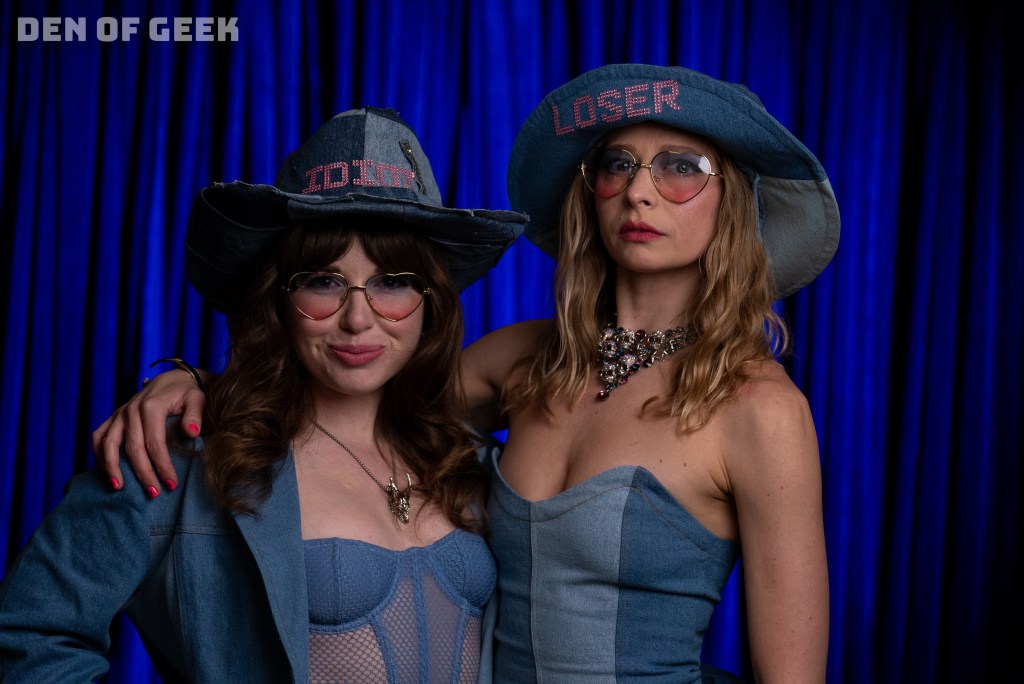
The Broadcast
Independent television is still a relatively new concept. For much of the medium’s history, the distributors and the gatekeepers were one in the same. Oh your pilot didn’t get picked up at one of the four networks? Well then I guess we’re never seeing your show! The streaming era has changed that state of affairs and SXSW remains on the forefront of the movement.
The biggest batch of indie TV content this year came from Duplass Brothers Productions, which showcased four series that are fully shot and ready-to-go: The Long, Long Night, Ryley Walker & Friends, Penelope, and The Broadcast. Of those options, the one with the brightest potential future is probably The Broadcast, created by and starring Natalie Palamides and Courtney Pauroso.
Set within the confines of a sterile white studio amid the post-apocalypse, The Broadcast follows Palamides and Pauroso’s cheerful newscasters as they spend some of their time reporting the latest news (Water? Still gone!) and the rest of it just generally losing their minds. It’s like if a live-action Looney Tunes were produced as an Adult Swim “Infomercial.” And come to think of it, Adult Swim should probably get them on the phone now. – Alec Bojalad
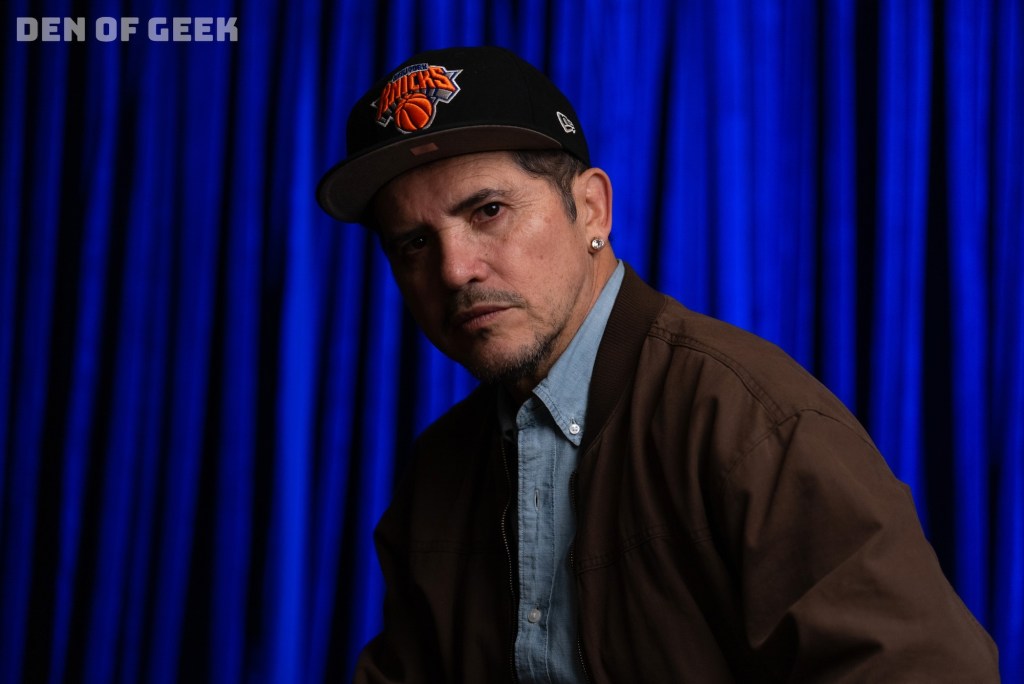
Bob Trevino Likes It
As the Audience Award winner in the Narrative Feature competition, Tracie Laymon’s sweet and semi-autobiographical Bob Trevino Likes It has hit a chord with anyone who’s watched it for obvious reasons. Based on an unlikely friendship from Laymon’s youth, Bob Trevino centers on a desperately lonely twentysomething named Lily (Barbie Ferreira). Lily is more fragile than usual, too, after being ghosted by her own father, Bob Trevino (Frenchie Stewart). Hence why she accidentally sends a Facebook friend request to a stranger of the same name. Only this Bob Trevino (John Leguizamo) is actually warm, caring, and happy to be a shoulder to cry on—if even only digitally.
There are many films that could be made from this setup, and Bob Trevino Likes It is aware of each and every one. Fortunately, it chooses to pinpoint the actual humanity and empathy that social media culture traditionally tells us never really existed. There are reasons to raise an eyebrow at a young woman befriending an older man, something Bob’s own wife (Rachel Bay Jones) clearly articulates. But sometimes good people can recognize when someone is lonely or in need of validation—even if only through a handful of Facebook comments. Bob Trevino is an easygoing, gingerly told narrative about not only being your best self, but helping others find it too. – David Crow
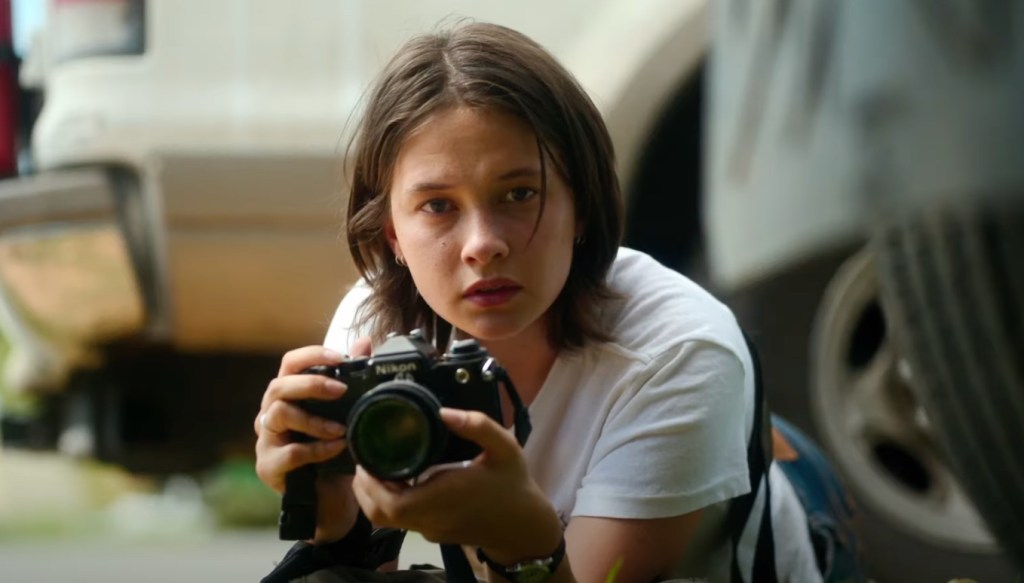
Civil War
Below is an excerpt from our five-star review of Alex Garland’s Civil War. You can read the full analysis here.
“The dark brilliance of Civil War is Garland treats this subject matter as simply a character study on war journalists. It could take place in any other failed 21st century state, with its landscape of despair captured through the familiar, harsh, and unblinking gaze of a battlefield photographer’s camera aperture. It’s a recontextualization of America’s obvious fault lines through the prism most civilians are used to: the bleak yet somewhat staid and orderly framing of black and white photographs that might appear on an evening news broadcast any given night. But when these reports are coming from inside the house (even the White House by the movie’s end), the effect is at once eerie and clarifying. This isn’t a disaster or horror film; it’s a narrative of human carnage and suffering as we’ve come to internalize and normalize it in our collective imagination via something as mundane as a social media video.” – David Crow

Cold Wallet
The winner of Steven Soderbergh’s last Andrews/Bernard award—essentially a grant allotted to indie filmmakers seeking to finish their films—Cold Wallet arrived at SXSW with a lot of interest and perhaps a twinge of schadenfreude against all the tech bros who swarm the fest these days. Because in addition to Cutter Hodierne’s little slice of nihilism being a bleakly effective thriller with viselike tension, Cold Wallet acts as a grim parable for our times and the intersection between capitalism and technology… and all the bodies that are buried beneath that crossroads.
In the film, a small team of hackers and Reddit-lurkers have dreams of vigilante justice after losing their savings to a fictional crypto currency exchange CEO (Josh Brener) who faked his death and then hid away in a snowbound mansion in their hometown. Catching and tying up the rogue tech savant is one thing; getting him to actually hand over his money is something else. There is, in fact, a nigh medieval element at work as the proverbial king tries to isolate and turn his captors (Raúl Castillo, Tony Cavalero, and Melonie Diaz) against each other. The fiefdoms might be digital now, but the lord of the manor will still pit the poors against each other.
Ripped from recent headlines and even program guides of SXSWs past, with FTX being once a golden idol on the tech side, Cold Wallet is an icy and cruel piece of work. It looks and finds the ugly, covetous side of man and woman. Technology has definitely brought folks together, but so many are still predators and prey. – David Crow
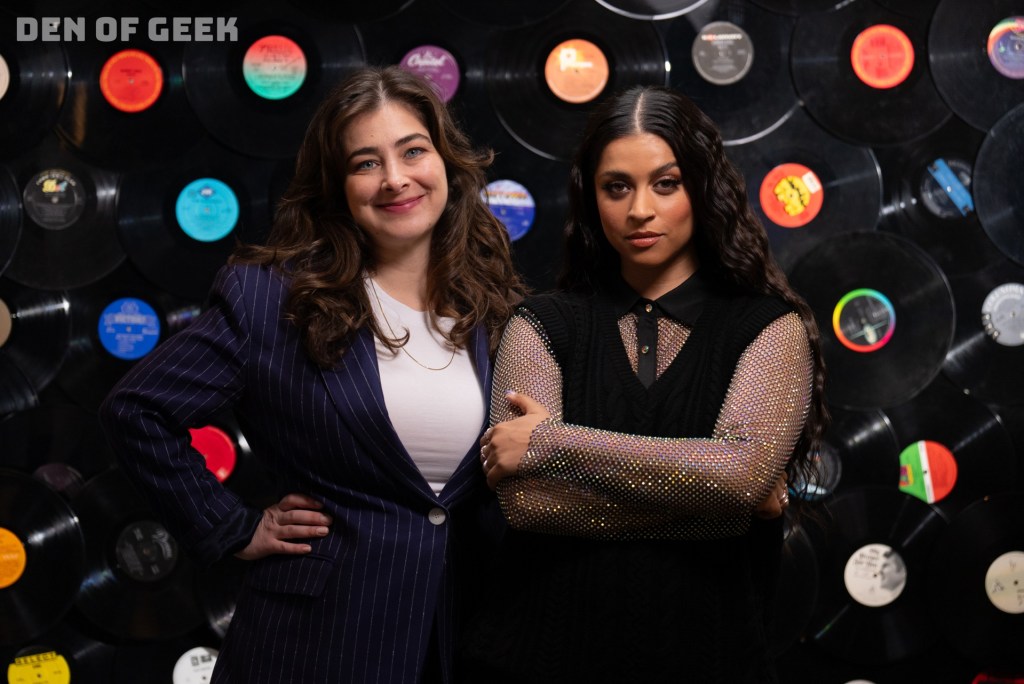
Doin’ It
An argument could be made that one reason the sex comedy is a perennial favorite with moviegoers (we’re ignoring those weird, terminally online scolds) is because sex remains an eternally forbidden taboo in our culture. Many American schools and state curriculums refuse to this day to teach basic sex education while others (including my own growing up) insist on abstinence being the only lesson. Which is one of the many reasons Sara Zandieh’s Doin’ It is such a bitingly funny comedy that took Austin audiences by storm. It goes back to the source for all our sexual hangups and shames: the high school experience.
Lilly Singh’s Maya certainly feels ashamed after she was caught in a compromising situation as a young teen in the American suburbs. As a punishment, her mother shipped Maya off to live with a strict grandmother in India. Now over 30 years old, Maya returns to the U.S. as a virgin with plenty of pent up frustration when she takes a job as a substitute teacher at the local high school where she’ll work in the only subject no one else wants—sex ed. The experience turns out to be a teachable moment for both the kids and their instructor.
With an obviously risqué setup for bedside hijinks, the appeal of Zandieh’s approach is she uses the concept to instead examine why folks feel so uncomfortable with their own bodies. The lessons that Maya learns probably should be taught in classrooms today. If they were, the teachers would be able to laugh too at what is an often shocking and gasp-inducing R-rated spectacle. How parents might process the movie’s naked determination to grasp any chuckle (or tasteless sight gag) is a different matter. Through it all though, Singh reveals real charisma as an actor and perhaps a too cool teacher. (Seriously, asking students for dating advice should probably be on no curriculum.) As it turns out, Doin’ It does it very, very well. – David Crow
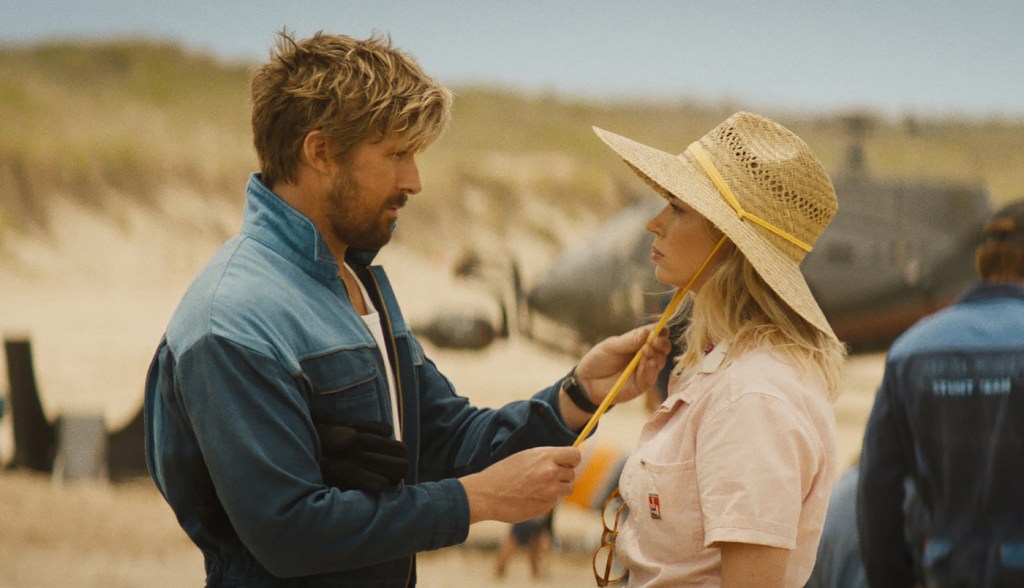
The Fall Guy
Below is an excerpt of our review of Ryan Gosling and Emily Blunt’s delightful Hollywood throwback. You can read the full review here.
Despite the title emphasizing action and spectacle, so much of The Fall Guy’s success hinges on the casting of Gosling and Blunt, who are again sublime. Both charismatic performers know how to banter and seem eager to recreate old Hollywood rom-com techniques in their scenes together, be it in Colt and Jody’s screwball-adjacent patter when arguing over how the final scene of the movie-within-a-movie should go or via a wild callback to Rock Hudson and Doris Day’s Pillow Talk, of all things. When the two debate on the phone the merits of using split-screen storytelling, The Fall Guy does exactly that, only Blunt’s director is dressed as an alien while getting pensive about romance. The movie is clearly smitten with a century’s worth of Hollywood gimmicks and gags, and uses the film’s meta-quality to telegraph in bright neon every last fragment of self-aware irony that is indulged. – David Crow
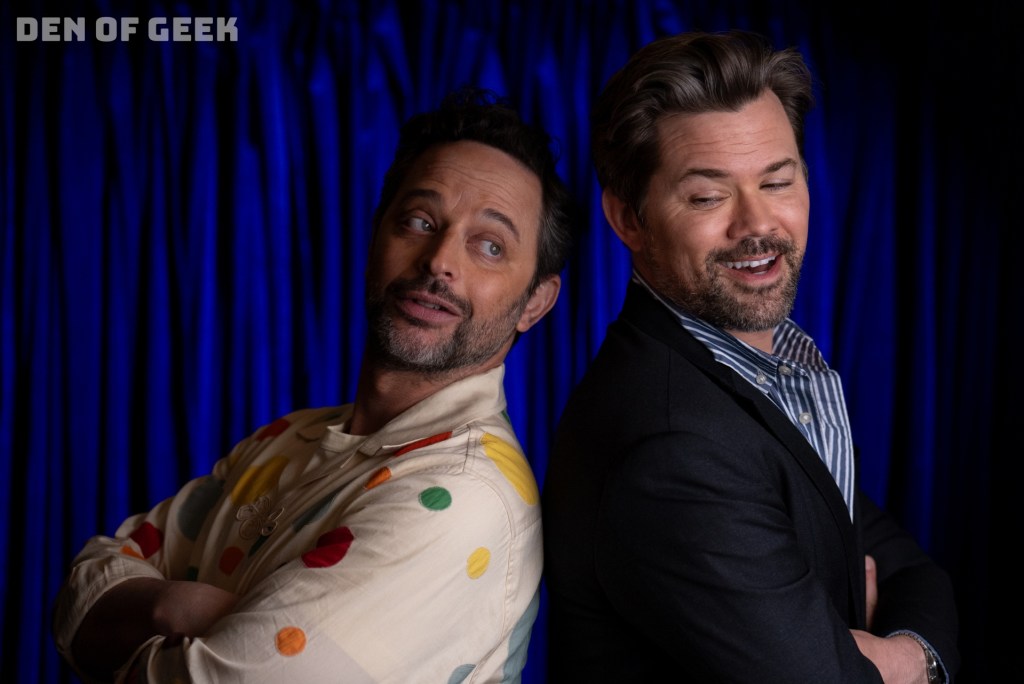
I Don’t Understand You
“I don’t understand you” is a phrase that one is equally likely to say to their spouse when going through a rough patch or to a vendor in a foreign country once the DuoLingo lessons wear off. In this dark comedy from filmmakers David Craig and Brian Cano, it’s both.
Andrew Rannells and Nick Kroll star as Cole and Dom, a married couple who are going through a stressful surrogacy process for their first child when they decide to decamp for an Italian vacation. The film, partially based on a real life chaotic trip taken by the married Craig and Cano, is split almost neatly into two halves. The first half is a basic comedy of errors featuring lots of misunderstandings. The second half is also that but with a lot more Italian blood than Italian dirt.
I Don’t Understand You is a warm indie experience featuring a personal story, some big time stars (Morgan Spector joins Rannells and Kroll in the ensemble), and a respectably short running time. If you watch it, just don’t drink whenever Kroll says “scuzzi” or you’ll die. – Alec Bojalad
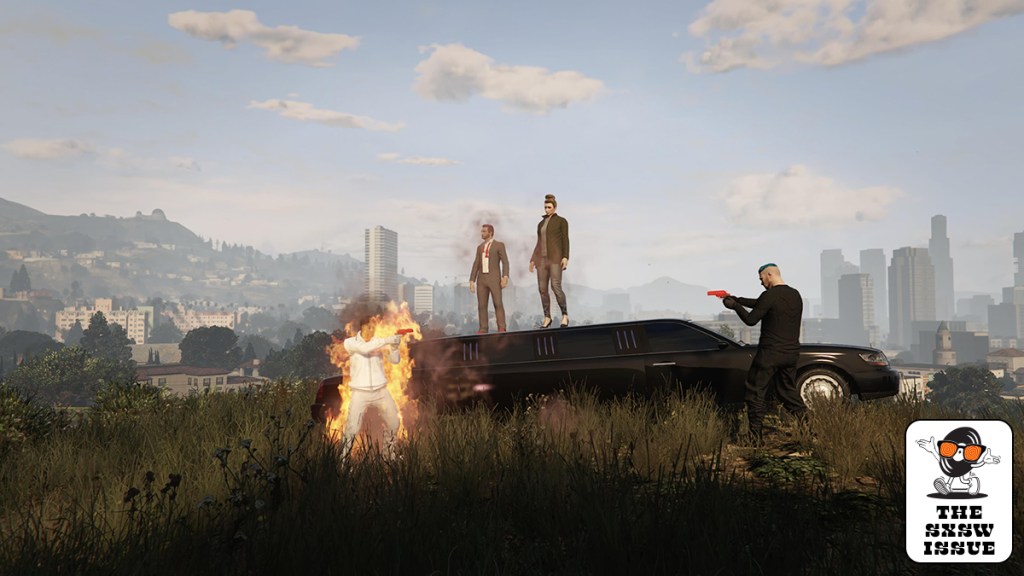
Grand Theft Hamlet
In their day, the works of William Shakespeare were populist entertainment, tales of either bawdy love or brutal murder—the latter of which just happened to go on to be remembered as some of the greatest art in the English language. So leave it to the world of video games to bring the Bard back to a wider audience, with all the blood and wit which comes in attendance.
A project born out of necessity, Grand Theft Hamlet began as an experimental exercise, and literal game, for professional actors Sam Crane and Mark Oosterveen. During the listless boredom of the pandemic, what if they used the interactive open-world of Grand Theft Auto Online to mount a production of Hamlet? Generally regarded as Shakespeare’s greatest tragedy, one that deals with the existential dread of mortality, Hamlet also has an incredibly large body count, and as Grand Theft Hamlet eventually proves, is a story ripe for the GTA treatment of wealth, excess, and execution.
Filmmaker Pinny Grylls documents Crane and Oosterveen as they assemble a cast of players, some professional actors and some who have never read a sonnet in their lives. She and co-director Crane also make the intriguing choice to never leave the game world of GTA. In lieu of talking heads, the gamers’ virtual reality during a global pandemic becomes the only one viewers will know. Like the ensemble, you’re asked to get lost in a sandbox of performance and shifting identity. And you learn that the play really is the thing. – David Crow
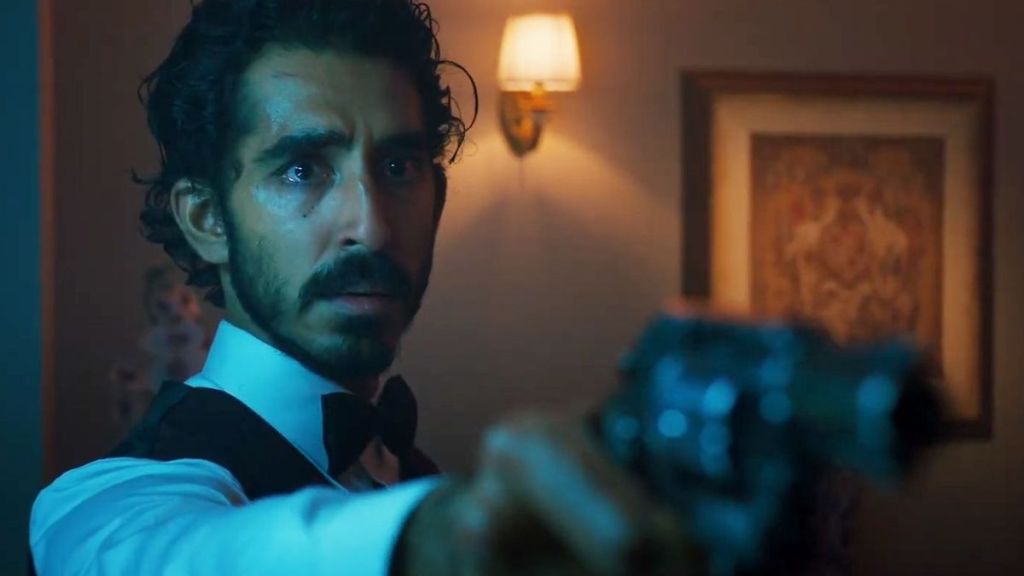
Monkey Man
Below is an excerpt from our review of Dev Patel’s long forthcoming directorial debut, Monkey Man. You can read the full critique here.
There is a scene late in Dev Patel’s directorial debut, the ferocious and ferociously entertaining Monkey Man, where the filmmaker, star, and co-writer rips a guy’s throat out. In the realm of action cinema, that is of course nothing new. However, the way it occurs here is. When Patel’s Kid finds his hands otherwise occupied, the feral protagonist improvises by catching a switchblade between his teeth and slowly unfurling its knife. He then drags its nasty end from ear to ear across the neck of a man he is wrapped around. The moment is intimate, drawn out, and very, very red. For its mastermind, it also must play like vindication. – David Crow
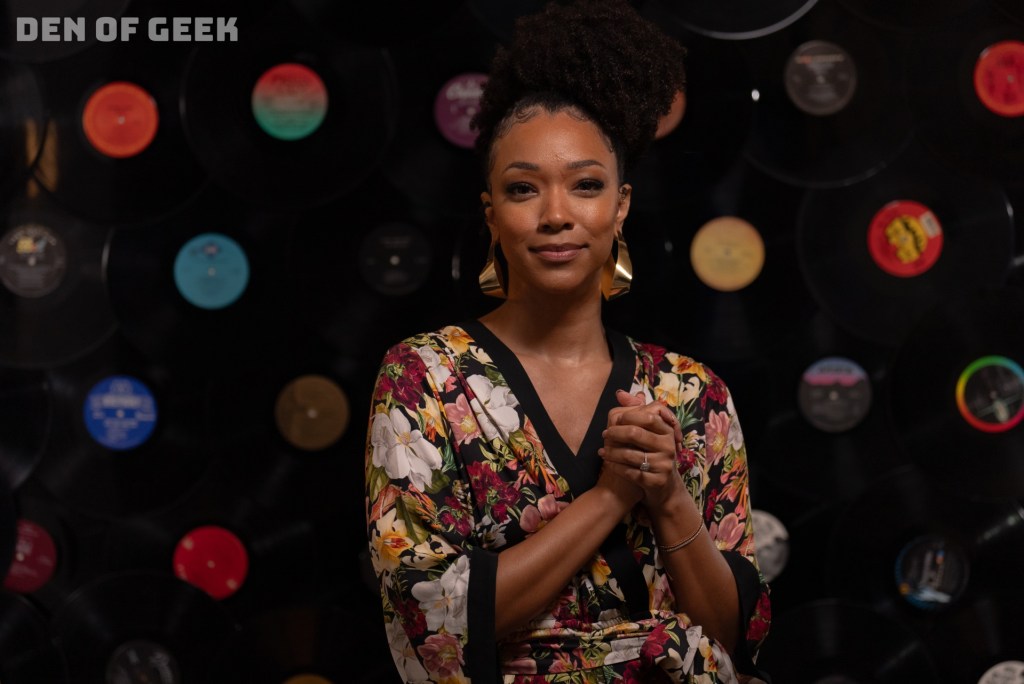
My Dead Friend Zoe
There are more than 16 million veterans living in the United States today. That roughly amounts to one in 20 Americans. And yet, the stories of those who came back from Iraq or Afghanistan in this century remain silent on the big screen. These conflicts are instead largely relegated to either action spectacles or simplistic, inarticulate hagiographies. Actual Iraq War veteran Kyle Hausmann-Stokes has changed this with his feature debut and one of the great discoveries of this year’s festival, My Dead Friend Zoe. Revealing a sweet, funny, and deeply human portrait of veteran culture (as well as the pain and PTSD that is also pervasive there), My Dead Friend Zoe reconfigures a story of trauma into a generational conflict about service, sacrifice, and regret.
Among the participants are Merit (Sonequa Martin-Green), a recent college graduate who served her country in Afghanistan in the 2010s, and Dale (Ed Harris), her laconic Vietnam era granddad who both inspired her service and now resents her inability to process it, especially after losing her best friend from over there, Zoe (Natalie Morales). Not that Zoe ever left Merit. Morales even steals much of the movie as a veritable trauma-ghost who materializes before Merit’s eyes like an invisible BFF bunny. She might be a manifestation of Merit’s own past regrets and unresolved survivor’s guilt, but that doesn’t mean the ghost cannot have jokes.
The chemistry between the two leading ladies obviously evokes a different type of veteran experience than what we usually see onscreen, particularly in regard to women who served, but so does an entire film which speaks to the traditions of honor, service, and patriotism—subjects usually absent from film festival circuit. Hausmann-Stokes tackles these obviously personal causes with clarity and confidence, revealing a deft hand that cuts between reality, fantasy, and the elusive middle ground we call memory. It’s a strong debut that should generate a lot of buzz beyond festivals. – David Crow
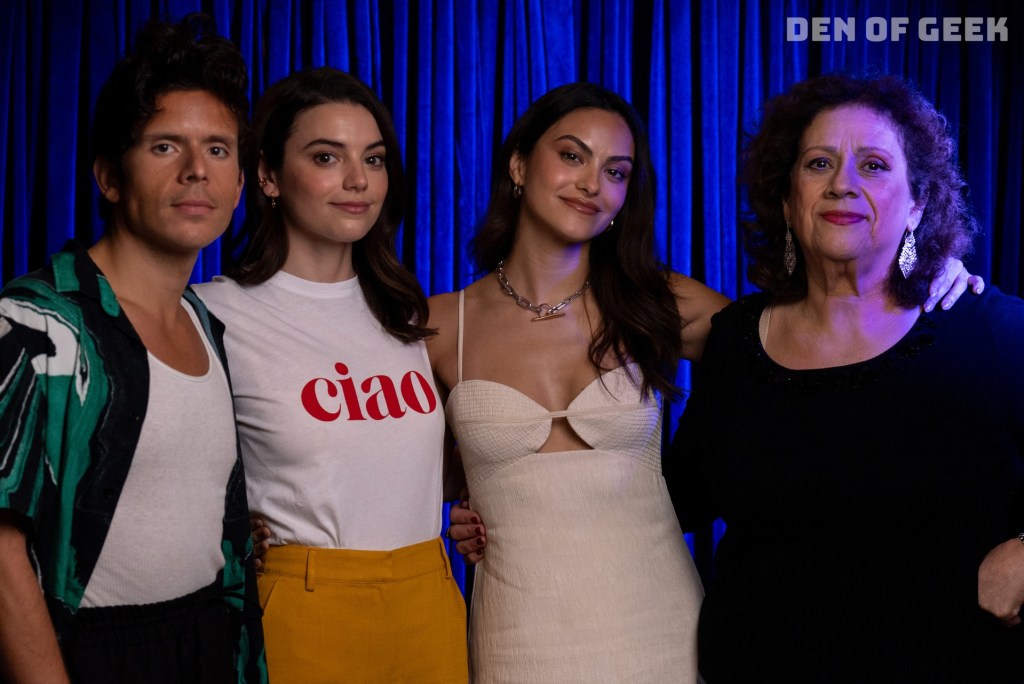
Música
Writer-director Rudy Mancuso mines his own life (and the dream lives therein) while crafting this charming if slight romantic dramedy that also works as riff on the 21st century movie musical. Playing a thinly veiled version of his younger self, Mancuso frames his twentysomething persona as an indecisive and vacillating dreamer who cannot even decide between the three women of his life: Haley (Francesca Reale), the wealthy and WASPy girlfriend he had all throughout college, Isabella (Camila Mendes), a fellow Brazilian-American he’s just met during one of his and Haley’s breaks, and Maria (Maria Mancuso), his overbearing mother.
The tortuous romantic triangle Rudy’s indecision invites provides the general dramatic momentum of the film, but its charms lay in the specificity of Mancuso’s interpretation of his upbringing. A real-life artist who played with puppets on the subway before transitioning to cinema, Mancuso incorporates internal conversations he’d have with puppets into the film and likewise heightens the artifice of the picture by alternating from shooting in his childhood home to instead filming on obvious soundstages that warp the viewer’s sense of reality. This is done because, at least in his version of events, Rudy is never able to keep his head in one place; he is forever mentally straining and adjusting the aural chaos from the city around him into melodic harmony. The film is likewise a visual cacophony that somehow makes sense.
Mancuso shows promise as a storyteller in how he is finally able to visualize and synthesize his fantasies, as well as intelligence in seeking enough authenticity as to cast his own mother, Maria Mancuso, as his overbearing onscreen matriarch. The resulting symphony offers a lovely glimpse into one corner of Brazilian-American culture. The leading ladies also do solid work, but a casting standout is J.B. Smoove as Rudy’s BFF, a food truck operator and romantic advisor of dubious expertise. – David Crow

A Nice Indian Boy
Director Roshan Sethi helms this adaptation of Madhuri Shekar’s play of the same name and finds a pleasantly distinct twist on the emerging LGBTQ+ rom-com: one set in the pressure-cooker environment of Indian-American families. It is there that Naveen (Karan Soni) knows theoretical acceptance in the abstract for being a gay man. However, his family has never met one of Naveen’s boyfriends nor seems in a hurry to do so. Yet when the thirtysomething doctor meets Jay Kurundkar (Jonathan Groff), the adopted white son of another Indian American couple, Naveen has run out of excuses to not bring the perfect boy home to the folks.
As a romance, A Nice Indian Boy is sugary but never ferments into something which would be mistaken for syrup. Soni and Groff have a warm chemistry, and the eccentric family around them only heighten the film, particularly Zarna Garg as a mother who is still living with her own choices of going through an arranged marriage to Naveen’s father many years before. Plus, despite how overly buttoned up Naveen and the fam is throughout the film, none of them can resist turning their life into a Bollywood-adjacent spectacle by movie’s end. – David Crow

This Is a Film About The Black Keys
From The Rolling Stones to Metallica, long-running rock bands often get compared to marriages. In the case of the latter, they might even seek marriage counseling for their stale relationship. When it comes to The Black Keys, however, the comparison is even more apt as this isn’t just a band, but a duo.
Since they first began recording in a suburban Akron, Ohio home in 2001, the fates of drummer Patrick Carney and guitarist Dan Auerbach have been irreversibly entwined. Starting as mere childhood acquaintances, the pair had to learn how to work together through countless tours to modest indie stardom to arena-packing success. Director Jeff Dupre’s documentary about the band, This is a Film About the Black Keys, covers nearly the entirety of that story.
Blessed with seemingly endless footage (and from the pre-cellphone camera days, no less), plus candid interviews with the rockers and their friends, this is a must-watch for any and all indie rock fans. Dupre understandably shies away from the real candid stuff, letting Carney and Auerbach discuss their at-times contentious divorces and family lives on their own terms. But it’s still hard to not get swept up in the underdog narrative. If nothing else, it’s also a nice way to listen to a bunch of good Black Keys songs for two hours. – Alec Bojalad

Y2K
Below is an excerpt from our review of Kyle Mooney’s demented directorial debut, the horror-comedy Y2K. You can read the full review of his movie about the world ending on Jan. 1, 2000 by clicking right here.
Unwavering in its rush to mine from the hills of millennial nostalgia, Y2K is the first film out of the gate to tap into the late ‘90s aesthetic, a time when going to a video store was considered a youth activity and bucket hats were worn unironically. For that reason, Mooney nor his screenwriter Evan Winter make any bones or apologies about the rose-tinted nature of the enterprise. This is a chipper time capsule that attempts to fuse together late ‘90s and early 2000s teen comedies like Can’t Hardly Wait and American Pie with the absurdity of an especially gruesome SNL digital short. – David Crow
